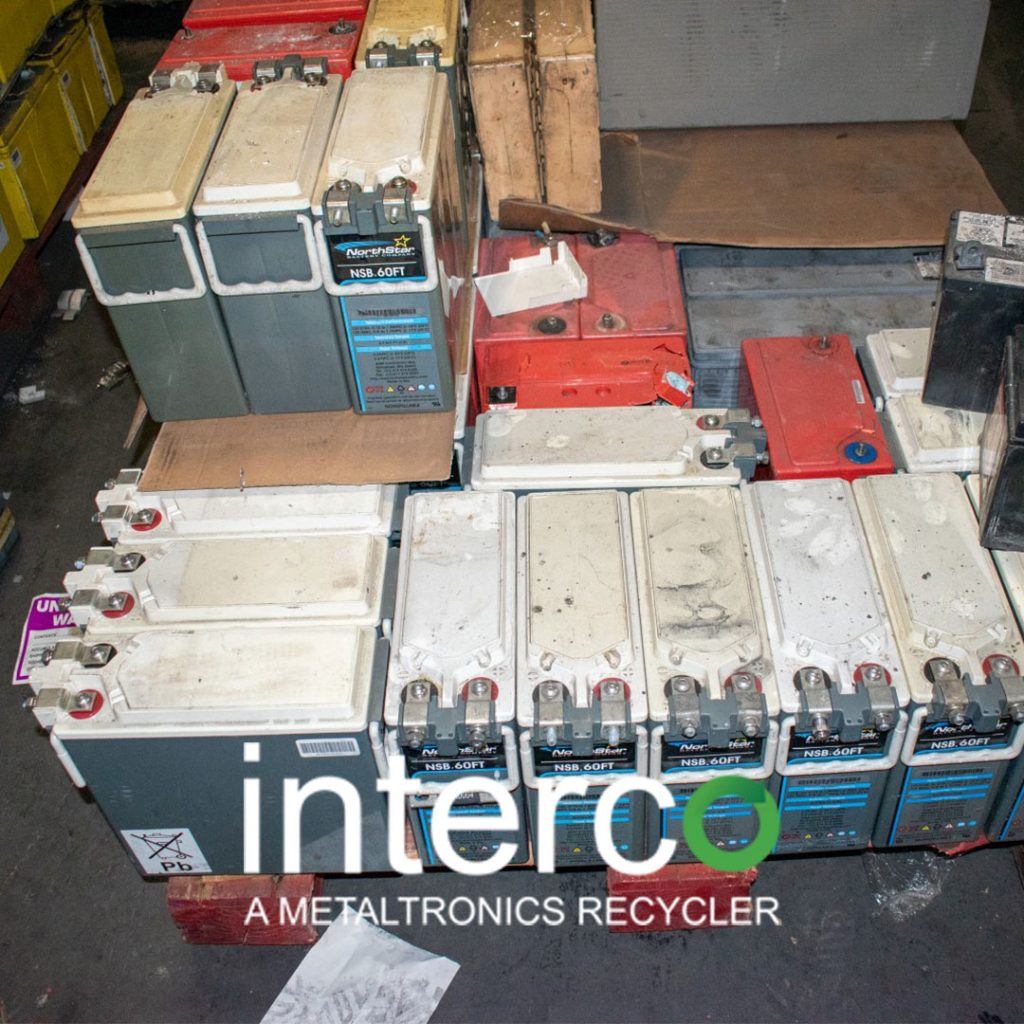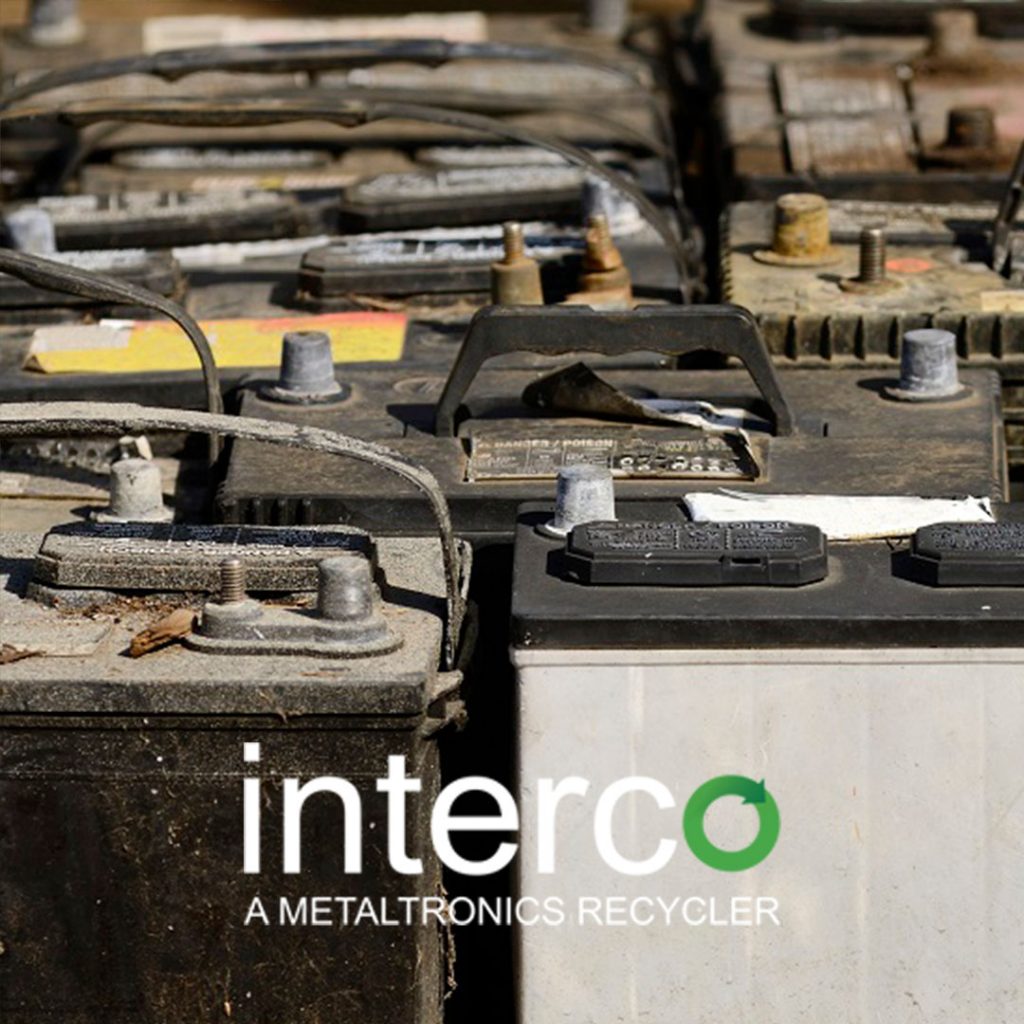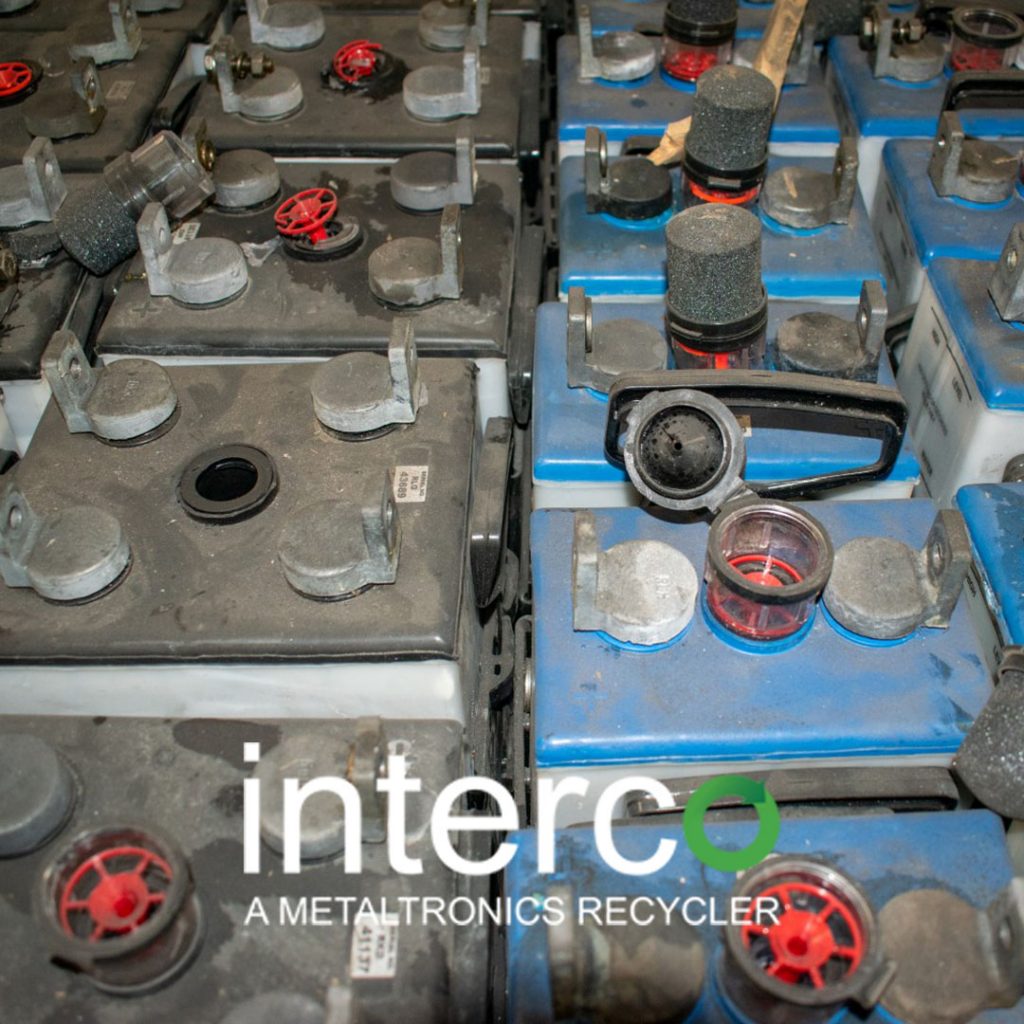The Importance of Scrap Lead-Acid Batteries Disposal Services

The Importance of Scrap Lead-Acid Batteries Disposal Services
In today’s age, recycling is becoming more mainstream. The EPA estimates that up to 80% of the plastic and lead in any new battery you purchase is recycled.
Interco recycles batteries of all shapes, sizes, and chemistry. Recycling batteries helps the environment by keeping hazardous material out of landfills and reduces the need to mine elemental metals for industrial production needs.
Lead-acid batteries are prohibited by State law from being disposed of in the trash and should be returned to the place of purchase or to a metal scrap yard that accepts them. In fact, it is highly advisable that people and businesses with the scrap material research scrap lead-acid batteries disposal services.
Interco recycles lead-acid batteries primarily for their lead content. Furthermore, the machines shred the whole batteries and sort the plastic and lead. Then they separate and clean the different materials while and drain and neutralize the acid. The process reintroduces the lead as an industrial material for commercial production.

Why is Recycling Scrap Lead-Acid Batteries Important?
It is estimated that over 50 percent of the lead supply comes from recycled batteries. Other battery types are not as economical to recycle and are not being returned as readily as lead-acid.
Scrap lead-acid batteries disposal services recycle those lead-acid batteries that are very reliable as backup or auxiliary power for reuse purposes. Manufacturers and consumers alike use lead-acid batteries as backup power supplies or to power things like the following:
- Automobiles
- Electric scooters
- Electric wheelchairs
According to the U.S. Environmental Protection Agency, specialized lead-acid battery recyclers crush old batteries into nickel-sized pieces and separate out the different components.
The plastic in lead-acid batteries is mostly polypropylene, which has a high heat tolerance. Therefore, it can enter the recycling process. The lead in the batteries is then sold to companies that make new batteries. Thus, the process of recycling contains environmental and economic benefits.
In addition, there are a few things you’ll want to look for in a scrap lead-acid batteries disposal service. For example, you’ll want to make sure they’ve received their recycling certification, which means they’re knowledgeable on all things recycled. Your company will also need to find out which recycling method they use, as well as if they’ve received any recycling violations.

Scrap Lead-Acid Batteries Disposal Services: The Recycling Process
These batteries eventually reach end-of-life status or become obsolete after about 3 to 5 years of use. Obvious in their name, lead-acid batteries contain large quantities of lead and sulfuric acid, therefore requiring a safe disposal method.
The process of recycling used lead-acid auto batteries should be done carefully and with all consciousness, preferably in a controlled environment far from residential areas. Here’s how to scrap lead-acid batteries disposal services like Interco recycle lead-acid batteries:
- First, recycling companies collect expired or used lead-acid auto batteries for battery depositories.
- The recycling company then neutralizes the acids. They introduce a base that subdues the corrosive properties (toxicity) of the acid for safe disposal.
- A hammer mill shatters the battery or breaks it apart. Moreover, recyclers refer to the process as hammering.
- Then, place broken pieces in a vat, so that the lead plates and heavy materials sink to the bottom while the plastic floats.
- They transport the polypropylene plastics into a plastic recycler to melt and refine them.
- Then, the process goes to clean the lead plates and heat them in furnaces, so they melt. After this, cast the molten lead into an ingot mold. After a few moments, the impurities float to the top of the cast, and they scrape them away.
- Finally, they re-melt the pure ingot casts and use them in new batteries.
Furthermore, it enables recyclers to recover valuable metals and reduces the harmful effects on the environment that improper disposal causes. Additionally, the team at Interco accepts, processes, trades, and recycles an array of nonferrous metals. Interco recycles batteries of all shapes, sizes, and chemistry.
Interco Offers Scrap Lead-Acid Batteries Disposal Services
Interco begins the recycling process by working with machines that shred the whole batteries and sort the plastic and lead. Then they separate and clean the different materials while and drain and neutralize the acid. The process reintroduces the lead as an industrial material for commercial production. The team at Interco continues to lead the way in terms of innovative industrial recycling solutions. Finally, to learn more about how to recycle lead-acid batteries, click here.